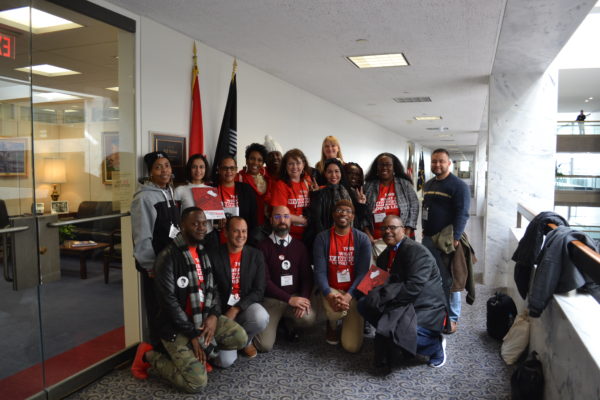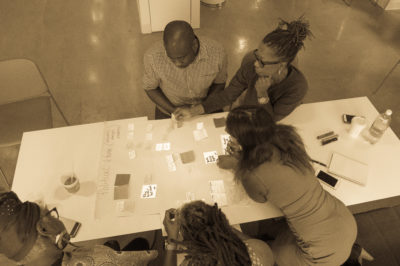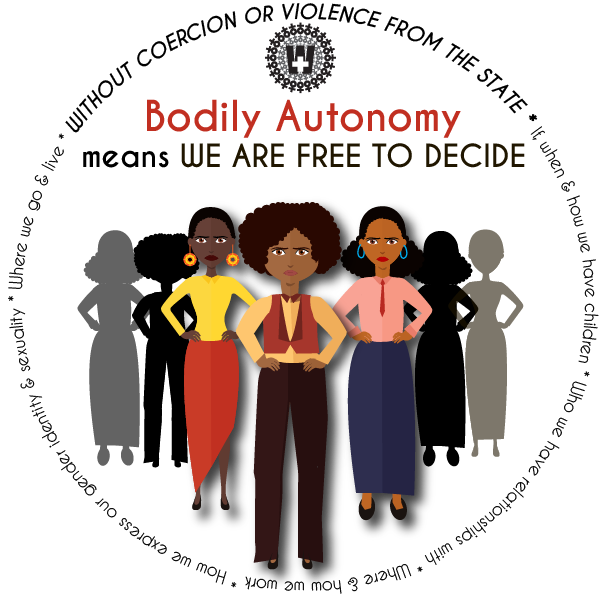Policy Factsheets to Download & Print
Harm reduction efforts prioritize the safety, rights and dignity of individuals engaging in the activity, rather than focusing on ending or preventing the activity. This approach respects people’s autonomy to make their own choices, and literally focuses on reducing harm that can result from those choices.
Universal Healthcare describes a system where all people can obtain the medical care and services they need without being pushed into financial hardship. All high-income industrialized nations, with the notable exception of the United States, have some form of universal healthcare where the government ensures quality medical services for all residents, regardless of ability to pay.
U.S. policies undermine the health and rights of sex workers internationally by requiring that organizations seeking funding adopt a policy against sex work. Additionally. in 2018 the U.S. passed rights violating restrictions via the Stop Enabling Sex Traffickers Act (SESTA) and Allow States and Victims to Fight Online Sex Trafficking Act (FOSTA). This legislation limits the sharing of vital safety information for sex workers online and causes economic harm and social marginalization.
How-To Guides, Toolkits & Other Resources
This guide was created as a resource to provide people living with HIV with knowledge and information to protect themselves from being prosecuted and/or criminalized under discriminatory HIV-specific laws. It includes sections with specific information for communities most likely to be impacted by HIV criminalization, as well as general information about understanding your rights as a person living with HIV if arrest, prosecution and/or incarceration should occur. The contents herein are not intended as legal advice
From the Center for HIV Law and Policy, this is a comprehensive online database of memoranda, research, reports, legal and medical guides, court and agency decisions, pleadings and briefs, policy analyses and recommendations, and other materials on topics of importance to people living with HIV and their advocates.
The latest addition to the HIV JUSTICE Toolkit, this toolkit provides an introduction to the topic of HIV criminalization and the importance of engagement with media to change narratives around this unjust practice. The toolkit also includes reporting tips for journalists, designed to educate writers and media makers around the nuances of HIV criminalization, and the harms of inaccurate and stigmatizing coverage.
Trainings & Tutorials
Context Matters: Using tools to inform your “End the Epidemic” advocacy
Context matters in the planning and implementation of the Ending the HIV Epidemic (EHE) initiative. amfAR’s free and interactive EHE database provides information on policy, services, and demographic and epidemiological indicators across EHE jurisdictions.
Presenters: Gregorio Millet, M.P.H., Vice President and Director, Public Policy, amfAR; Austin Jones, Policy Associate, amfAR. Moderated by Naina Khanna, Executive Director,PWN-USA.
State Legislative Advocacy Series #4. Community Mobilization
In the 4th installment of our state legislative advocacy series, PWN National Field Organizer, Evany Turk and PWN Policy Director, Breanna Diaz, spoke to our members who are interested in mobilizing and organizing their communities.
During the webinar, we discussed:
Many ways you can organize on issues important to you!
How to contact and engage with your legislators and community via social media, letter campaigns, phone zaps, and more.
The importance of coalitions: how to find them and how to get involved.
State Legislative Advocacy Series #3. Messaging for Impact
This webinar, hosted by PWN’s communications and policy departments on January 27, 2021, covers the basics of messaging your issues or bills for different audiences, including your community; fellow advocates; and lawmakers (or other key decision-makers).
Presenters:
Jennie Smith-Camejo, PWN Communications Director
Barb Cardell, PWN Training Director
Tana Pradia, PWN Board Member and member spokesperson
State Legislative Advocacy Series #1. State Legislation 101
We know many of the laws that most directly impact our lives are made at the state level. As the 2021 state legislative session approaches, it’s critical to prepare to fight for the issues that affect us, including access to health care, reproductive rights, LGBTQ rights, and criminalization. PWN is proud to announce our State Legislative Advocacy Training Webinar Series– a four part monthly webinar series–to sharpen our advocacy skills to be as effective as possible. Wednesday, Nov. 18, PWN’s Policy Department presented the first webinar in the State Legislative Advocacy Training series, where we discussed the state legislative process.
This webinar addresses:
- How a bill becomes law.
- What legislative committees are and how to participate in committee hearings.
- How to submit testimony, track legislation and more!
State Legislative Advocacy Series #2. Issue-Based Advocacy
The second webinar in PWN’s State Legislative Advocacy Training Series, on issue-based advocacy from a racial and gender justice lens, included presenters from Positive Women’s Network Colorado and Colorado Organizations and Individuals Responding to HIV/AIDS (CORA) who will share how they got a bill increasing access to PrEP passed in the 2020 Colorado legislative session, including specific examples of:
- community engagement as the bill was drafted,
- testimony at committee hearings,
- suggested revisions to be more inclusive of women and rural communities,
- mobilizing before the vote on the senate floor, and
- pushing the governor to sign the bill.
Policy 101- Universal Healthcare
In this webinar, the objectives were to increase participants’ understanding of what Universal Healthcare is and why it is a PWN-USA policy agenda issue. Secondly, we educated participants on the Democratic Presidential Candidates Healthcare Proposals. Presenters are Breanna Diaz, PWN Policy Director, and Kelly Flannery, If/When/How Reproductive Justice & HIV Legal Fellow.
Learn to Use Legiscan to Track Bills
Watch this brief tutorial on Legiscan to learn how to track legislative bills.
Who Are Advocates? What’s a Campaign?
What is a campaign? Who are advocates? This 101 webinar training teaches you the nuts and bolts of getting started in advocacy work to effect change.
HIV Criminalization First Responder Series #1: Laws, Facts and Policy
The first webinar in PWN-USA’s HIV Criminalization First Responder series included an an overview of respectful, person-first language use, facts about HIV criminalization, and what rights people living with HIV have when they are criminalized. This session also covered how to research state law and policy that impacts people living with HIV. This session featured PWN staff and chapter leaders Barb Cardell and Bonetta Spratley.
HIV Criminalization First Responders Series #2: Activating Support Networks
The second webinar in the First Responder series focuses on activating support networks for people experiencing HIV criminalization. This webinar covers how to work with local coalitions and organizations, how to create fundraising campaigns, and how to create social support systems that keep people living with HIV who are incarcerated connected to their communities and community resources.
HIV First Responder Series 3: Combating Stigmatizing Reporting
The third webinar in the First Responder series will focus on media advocacy, including responding to negative and stigmatizing reporting by the press, op-ed writing, creating publicity materials, and talking to media about HIV criminalization.
The last webinar in the First Responder series will include an in-depth look at the criminal legal system. This training will introduce participants to the main “players” that people experiencing HIV criminalization will encounter, including prosecutors, public defenders, and judges. The training will also discuss advocacy techniques for ensuring the privacy and human rights of PLHIV are upheld while engaging these players and navigating the criminal legal system.
The objectives of the webinar are to:
- Learn to identify federal agencies where federal policy is administered,
- Increase understanding of the federal legislative policy making process, and
- Learn to identify key policymakers to target for advocacy efforts.
Presenters: Arneta Rogers, PWN-USA Policy Director; Candace Bond-Theriault, Policy Counsel, National LBGTQ Task Force and Zsea Beaumonis, LSRJ Fellow, National LGBTQ Task Force.
The objectives of the webinar are to:
- Understand the impact of violence and trauma in the lives of women living with HIV;
- Provide an update from the White House;
- Provide an update on Federal Interagency Working Group on HIV/AIDS, violence against women and girls and gender-related health disparities;
- Discuss opportunities to expand services for women living with HIV under the Affordable Care Act and
- Discuss advocacy opportunities and next steps.
Presenters are: Gina Brown, PWN-USA & PACHA; Lynn Rosenthal, White House Advisor on Violence Against Women; Maggie Czarnogorski, Senior Policy Advisor, White House Office of National AIDS Policy; Linda Dawson, Kaiser Family Foundation; Kathleen Griffith & Olivia Ford, PWN-USA.





